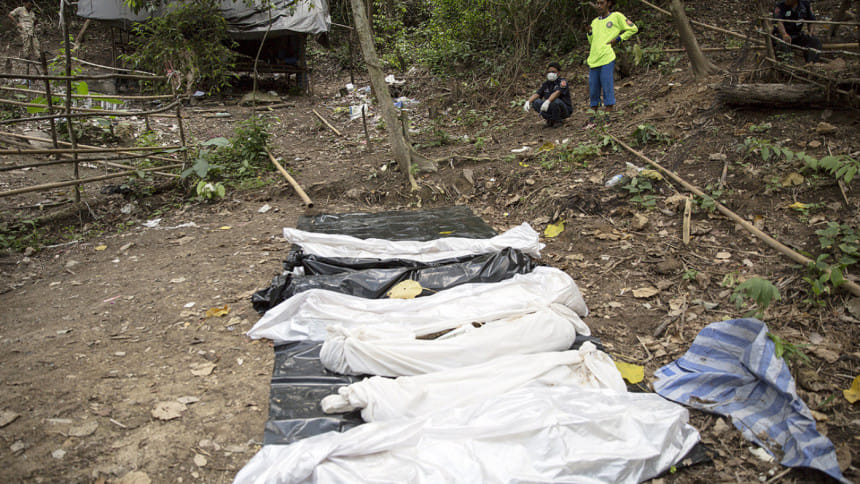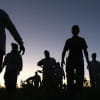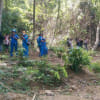They starved us and threw the dead overboard, says victim

Petaling Jaya: Death, hunger and torture were all part of Bangladeshi national Mohd Rashid's arduous sea journey from Teknaf to Malaysia.
Rashid, 26, was seeking work to support his family when a man offered him passage for a pittance.
With high hopes, he made the treacherous voyage with over 400 other men in a boat in the hope of finding work on foreign shores – but ended up half-starved and thousands of ringgit poorer.
He was lucky. Some of those who made the trip with him died of sickness and starvation, and their bodies were tossed overboard.
"By boat, we all went to the Myanmar border. There, we were loaded into a larger ship and taken to Thailand. From there we crossed the border into Kedah."
From Kedah, he took a bus to Kuala Lumpur, where a friend picked him up. By then, he was incredibly sick and weak.
"I couldn't work because I was so weak. It took me two months to recover, with my friend looking after me. On the boat, we didn't have enough food or even enough water. It was cramped and dirty."
Teknaf, nicknamed 'Malaysia airport', sees thousands of Bangladeshis make the journey to Malaysia, with ships leaving daily.
"Throughout the whole journey I was repeatedly asked for money. My agent beat me and threatened me until I paid nearly RM14,000 (Tk 3.35 lakh) in total." Mohd Rashid, who didn't even bring his passport with him, told The Star.
According to Mohd Harun Al Rashid, the regional coordinator for Caram-Asia, a regional network which fights for migrant rights, Mohd Rashid's story was a common one that they heard very often.
"It happens very often, from the extortion to the deaths. This is not a rare case," he said.
Traffickers are able to avoid authorities by travelling by sea, and the area is replete with shops selling supplies like life jackets and food.
- The Star/Asia News Network

 For all latest news, follow The Daily Star's Google News channel.
For all latest news, follow The Daily Star's Google News channel. 






Comments